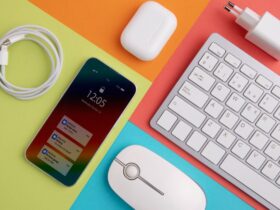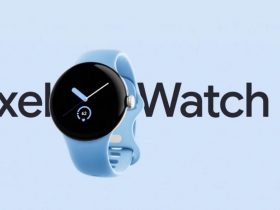Welcome fellow readers, today we will talk about the top 10 free mobile apps that you should never install for both iOS and Android because these apps can cause more harm than good. Not only we will tell you the apps that should not be on your phone but also why we don’t trust these apps.
So without further ado, let us begin with the list.
Also Read: 10 Best P2P File Sharing Software In 2024
10 Free Apps That Should Not Be On Your Phone
1. SHAREit
SHAREit is a peer-to-peer file sharing mobile application with over 1 billion downloads on Android. Apart from file sharing this app also lets content streaming and acts as a gaming platform. One can share files both online as well as offline.
This app was originally developed by Lenovo in mid-2010 and its hardcoded password was 12345678 which, as many would be familiar, is not a very strong password especially being used by such a tech giant leaving it to be exploited by anyone.
Since then it has had multiple vulnerabilities which have been apparently fixed that could have led to Data Theft, installation of malware and arbitrary code execution.
2. CCleaner
CCleaner is a popular utility app with over 100 million downloads which helps users delete potentially unwanted files. However, over the past several years the app has had numerous issues on its PC app including system data collection, active monitoring and bundling additional software into its own products without obtaining consent from the users.
With issues like these on its PC versions, we would not be trusting CCleaner with our mobile phones.
3. Truecaller
Truecaller has over 1 billion downloads on Android itself and is used to identify callers as well as to block spam calls, however, the app which was built to help you get away from spammers is actually making it easier to spam you.
Most of the users on the app give it access to information about themselves as well as everyone in their contact list and this information stays with Truecaller even after you delete your account.
4. TikTok
TikTok might not come as a surprise for many given a lot of countries have already banned this app like Australia, Belgium, India, Afghanistan, Pakistan, Canada and Denmark to name a few. Even the Trump administration was after TikTok.
Over the last few years, there have been real privacy concerns putting users at risk. TikTok’s privacy policy makes Amazon, Facebook, Google and other tech companies look good in comparison. Researchers have come out to say that TikTok can also monitor keystrokes even when the app is not open and listen to you via your phone’s in-built microphone without your permission.
5. Camera+
This is an iOS exclusive app and is one of the most popular photography apps filled with features, however, this makes it require a lot of processing power making your Apple device run less efficiently and also draining the battery a lot faster.
We recommend using the built-in features which come with the Camera app on your Apple Devices, especially on your iPhones which have been made more robust with time.
6. Opera Browser
Opera used to be one of the best browsers in the world and recommended by some of the biggest tech platforms around the globe. Now the browser is owned by Chinese companies Beijing Kunlun Tech Co., Ltd. (Zhou Yahui) and Keeneyes Future Holdings Inc (Zhou Yahui) and the initial founders are no longer associated with the browser.
The browser is failing miserably trying to become relevant again, they claimed to have a built-in VPN completely free to use, however, it is just a free proxy. While a VPN encrypts your data while browsing with strict protocols in place, however, Opera’s VPN does not.
Vivaldi is one alternative which is led by one of the co-founders of Opera and is available for both iOS and Android.
7. LastPass
lastPass is a password manager which should not be on any mobile phone regardless you use iOS or Android. Last year in August and November, LastPass suffered two security breaches when hackers not only managed to copy their customer database but also some copies of their customers’ passwords.
8. Ring- Doorbell & Security Apps
Ring was bought by Amazon back in 2018 for a whopping $ 1.2 billion and makes doorbells, cameras and some other products which are good products, however, when it comes to their mobile app, it is nothing short of a privacy nightmare.
The app allowed third-party trackers that spread IP addresses, names, mobile networks, identifiers and also sensor data to analytics and marketing companies.
Earlier this year, Ring paid $ 5.8 million in fines to the FTC for allowing not just employees but any contractor to access the private videos of customers and for failing to implement that basic privacy and security protection on its app which allowed hackers not only to take control of customer’s accounts and videos but also cameras for live feed.
9. CamScanner
A China-based mobile app that allows users to scan any document using their phone’s camera and share it as a PDF or JPEG is one of those applications which we cannot trust any longer. The app has over 100 million downloads on Android alone.
Just a few years ago the Android version of the app was found to contain a malicious Trojan dropper which was being controlled by hackers who not only showed them ads but also signed them up to paid subscriptions.
Though CamScanner has claimed to have removed the malicious code since then, however, we would highly advise our readers to stay away from CamScanner and use alternatives such as Adobe Scan which is also superior to its Chinese counterpart and shows no ads.
10. Zoom
A video communication service that gained popularity during the pandemic as people were forced to stay home/indoors during the COVID-19 pandemic. This platform, in the past few years, has been flagged for several security and privacy concerns.
Earlier in 2023, Zoom was caught by The Hacker News where the platform updated its Terms and Services which allowed Zoom to train its AI models using customers’ data while giving no way for the customer to opt out.
Though Zoom has backtracked a bit because of the backlash, it is a company we would not trust in the future with our data.
With this, we conclude our list of 10 free apps that should not be on your phone. We hope this will help you keep your data more secure and if you think there are more apps which should be on the list, tell us down in the comments and we will surely dive deep to find out more.






















Leave a Reply